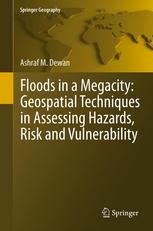

Most ebook files are in PDF format, so you can easily read them using various software such as Foxit Reader or directly on the Google Chrome browser.
Some ebook files are released by publishers in other formats such as .awz, .mobi, .epub, .fb2, etc. You may need to install specific software to read these formats on mobile/PC, such as Calibre.
Please read the tutorial at this link: https://ebookbell.com/faq
We offer FREE conversion to the popular formats you request; however, this may take some time. Therefore, right after payment, please email us, and we will try to provide the service as quickly as possible.
For some exceptional file formats or broken links (if any), please refrain from opening any disputes. Instead, email us first, and we will try to assist within a maximum of 6 hours.
EbookBell Team

5.0
80 reviewsFlooding is one of the most devastating natural hazards in the world. Available records suggest that both flood frequency and severity are on the rise and this is likely to worsen in the context of climate change. As population, infrastructure and poverty grow rapidly in developing countries, particularly in urban agglomerations of 10 million people or more, floods could cause widespread devastation, economic damage and loss of life. Assessment of vulnerability and risk from naturally occurring phenomena is therefore imperative in order to achieve urban sustainability.
This book uses geospatial techniques to evaluate hazards, risk and vulnerability at a metropolitan scale in a data-scarce country. An empirical study was performed using remote sensing, GIS and census data. This research offers a new approach to mapping population, infrastructures and communities at risk which can greatly contribute to the deeper understanding of flood disasters in a rapidly expanding megacity. Examples shown in this book are from Dhaka Megacity, however, the techniques and methods can easily be implemented in medium to large cities of similar characteristics.
The book is essential reading for hazard researchers, geospatial scientists, disaster management professionals, geographers, urban planners, and social scientists.
Ashraf M. Dewan is currently a Lecturer in the Department of Spatial Sciences at Curtin University, Western Australia (on leave from his substantive position as Associate Professor in the Geography & Environment Department at the University of Dhaka, Bangladesh).